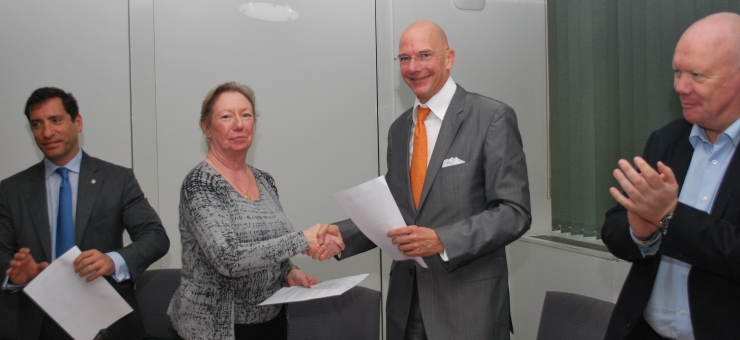Promoting Lifelong learning for bank employees in CEE countries

UNI Europa Finance has signed joint conclusions and recommendations of the European project on Lifelong learning with its counterparts on the employers’ side. Two years after having completed the project with financial support of the European Commission, European social partners of the banking sector invited their respective affiliates to a conference in Brussels and take stock of the progress made based on the project’s outcomes in 2013. The project had given impulse to steer social dialogue, starting with the topic of Lifelong learning, at national level in Central and Eastern European countries. In the three target countries, Romania, Bulgaria and Croatia, no sectoral social dialogue has been developed at national level yet. While Lifelong learning is very much promoted by the employers’ associations and also by some of the governments, a truly joint social partner approach at national level is still missing. Social dialogue on Lifelong learning and other matters takes place only at company level.
David-Pascal Dion, Head of unit at of DG Employment and social affairs, congratulated the social partners on their achievements in the frame of this project. He emphasised that capacity building does not just mean using the financial support of the European Commission but that it also was a question, among other things, of building trust between social partners. Making reference to this point, Pia Desmet, UNI Europa Finance Vice-president, concluded that big steps have been made both in capacity building but also in improving the cooperation between the European social partners in banking in the past years, thus establishing a good basis for taking the next steps in establishing social dialogue at national level where it does not yet exist. Lifelong learning is still an important starting point to do this.
Finally, the secretariats of the European social partner federations highlighted the organisational challenges that go hand in hand with the political challenges in the frame of social partner projects and need to be managed day by day in close cooperation in Brussels.

